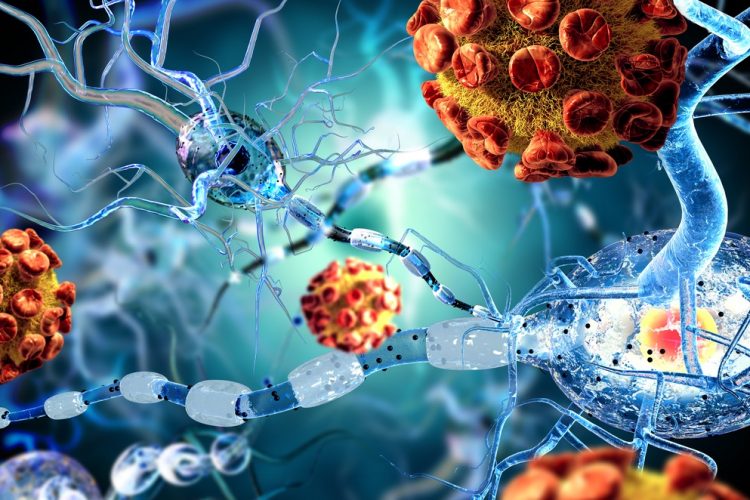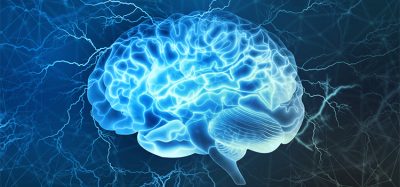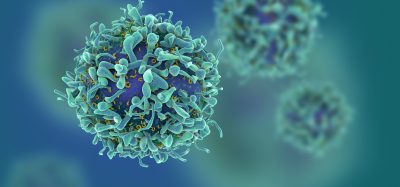Biomarker suggests COVID-19 could cause brain injury in patients
Posted: 19 June 2020 | Victoria Rees (Drug Target Review) | No comments yet
Researchers have found that a neurofilament named NfL is heightened in COVID-19 patients who require ventilator treatment, so could serve as a biomarker for the disease.

Certain patients who receive hospital care for COVID-19 exhibit clinical and neurochemical signs of brain injury, a University of Gothenburg, Sweden, study shows. In even moderate COVID-19 cases, finding and measuring a blood-based biomarker for brain damage proved to be possible, the researchers say.
Among the severely ill, it has become clear that patients sometimes show obvious signs of the brain not functioning as it should. These cases are not common, but do occur.
The researchers collected blood samples from 47 patients with mild, moderate and severe COVID-19 in the course of their hospital stay. These samples were analysed by means of highly sensitive biomarkers for brain injury. The results were compared with those from a healthy control group comprising 33 people matched by age and sex.
The main biomarker investigated was neurofilament light chain protein (NfL), normally found inside the brain’s neuronal outgrowths, which it serves to stabilise. However this leaks out into the blood if the neurons are damaged. The researchers found elevated plasma NfL concentrations in most of the patients who required ventilator treatment and there was a marked correlation between how much they rose and the severity of the disease.
“The increase in NfL levels, in particular, over time is greater than we’ve seen previously in studies connected with intensive care and this suggests that COVID-19 can in fact directly bring about a brain injury. Whether it’s the virus or the immune system that’s causing this is unclear at present and more research is needed,” said Henrik Zetterberg, Professor of Neurochemistry, whose research team performed the measurements.
“It would be highly interesting to see whether the NfL increase can be slowed down with new therapies, such as the new dexamethasone treatment that’s now been proposed,” said lead researcher Magnus Gisslén, Professor of Infectious Diseases.
The results are published in Neurology.
Related topics
Biomarkers, Disease Research, Drug Targets, Neurons, Neurosciences, Research & Development
Related conditions
Coronavirus, Covid-19
Related organisations
University of Gothenburg
Related people
Professor Henrik Zetterberg, Professor Magnus Gisslén







